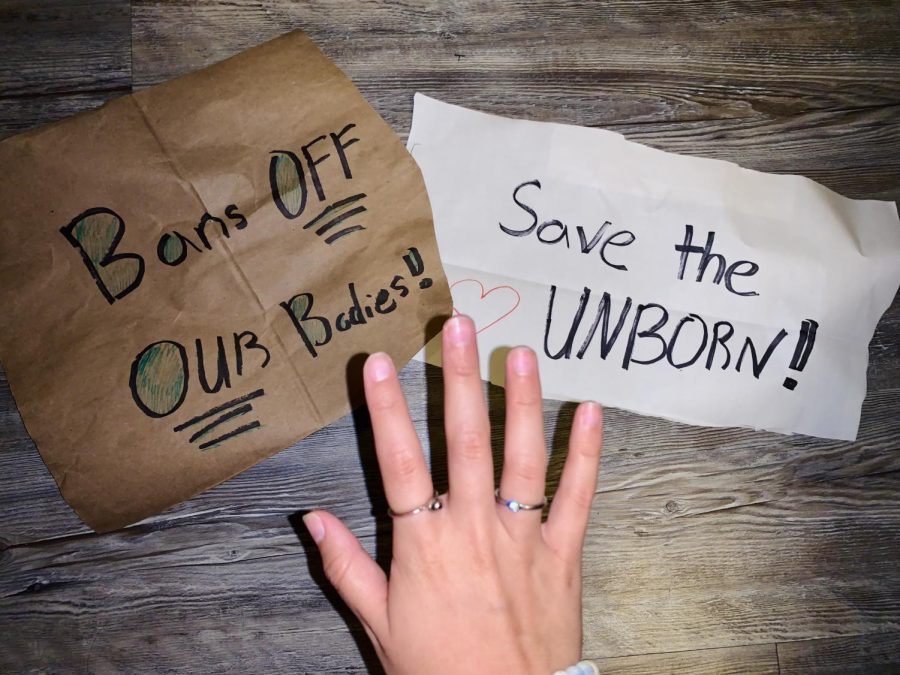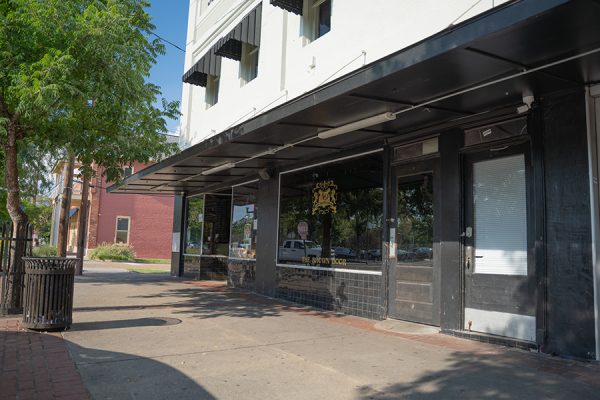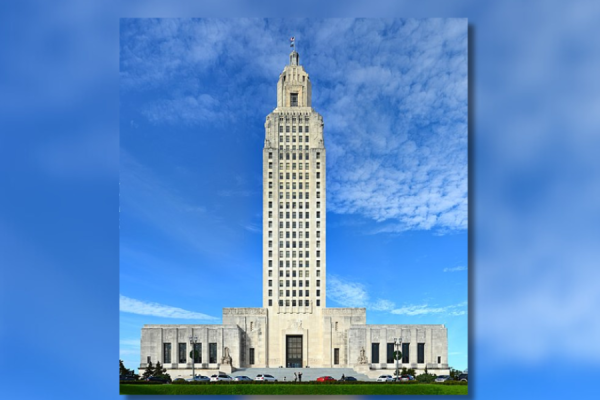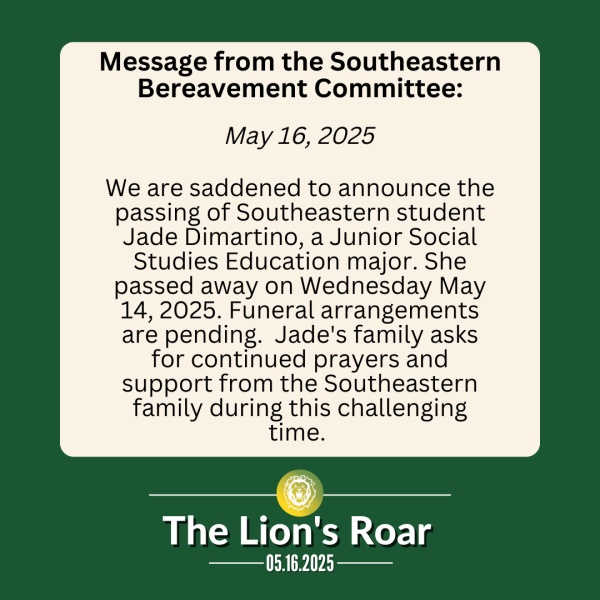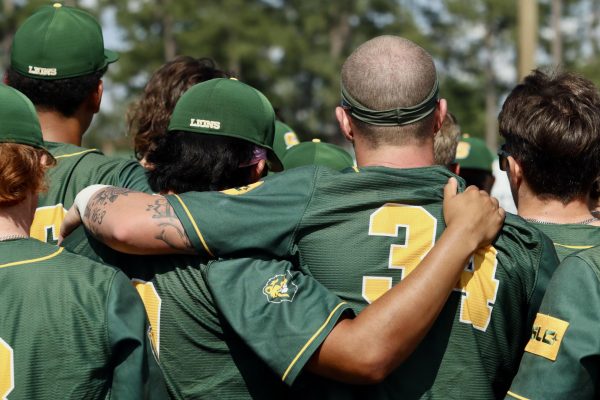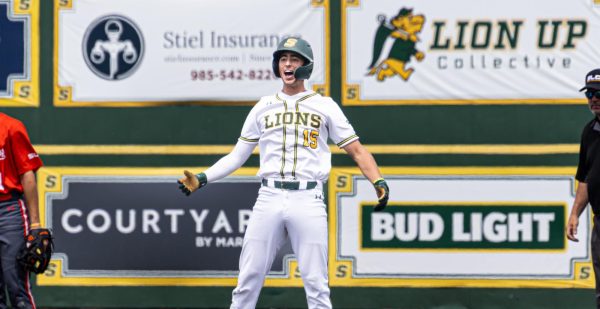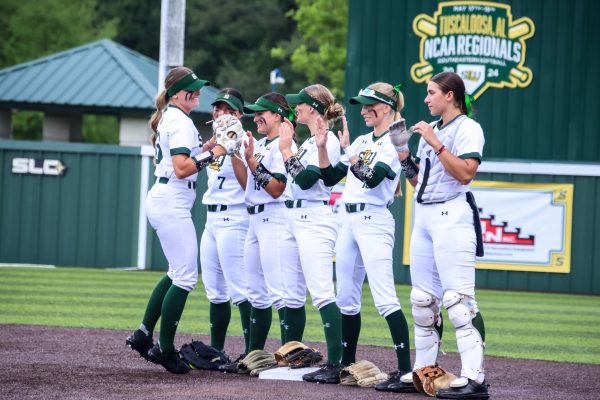What students have to say on Roe v. Wade
Two common pro-choice and pro-life sayings are displayed on hand-written signs. Conversations surrounding Roe v. Wade have been divisive between pro-life and pro-choice individuals since its beginning in 1973.
Pro-life and pro-choice groups have long debated the 1973 U.S. Supreme Court case Roe v. Wade because of its implications for reproductive rights.
As of June 24, the historic ruling in which the court granted the right to choose to have an abortion was overturned and left to the states. Women of all ages are discussing Roe v. Wade and what the decision’s reversal means to them.
Three young women who attend SLU and one recent graduate shared their thoughts, feelings and experiences when it comes to this overturn and the court case itself.
Jenna Duvic, a spring 2022 graduate, felt overjoyed when her mom told her about the overturn. She almost did not want to believe it for fear of getting her hopes up.
Similar to Duvic, senior psychology major Taylor Hebert expressed her happiness and a feeling of hope after hearing about the overturn through a group text.
“In today’s world, news travels fast. As the first news articles began reporting on the new rulings
on abortion laws, a group of friends were messaging me completely overwhelmed with the
news. There was a newfound hope that all of our voices were being heard,” Hebert said.
The first time Hebert heard about Roe v. Wade was in high school. Similarly, junior computer science major Christina Hoover initially heard about this case in high school, but found herself to be pro-choice.
In Hoover’s case, after learning about Roe v. Wade in history class and gathering information as she grew, it surprised her that such a shift is happening.
“Hearing something that had been in place for 50 years being changed now all of the sudden, made no sense to me. It means for the people, women of all identities, that not only can they not protect themselves and their health, but they cannot make a decision that would benefit themselves and those around them,” Hoover explained.
Conversely, Hebert shared that while she was more politically inexperienced in high school when she learned of the court case, she still felt that it was not right at the time and later on became passionate in advocating against abortion.
Later on in life, Hebert attended several March for Life events in Washington D.C., an annual rally and march that opposes the practice and legality of abortion. These trips only solidified her belief after hearing testimonies of those who had abortions or had survived failed abortions.
Lucy Bateman, a sophomore art education major, is upset and angered by the reversal.
Her feelings derive from personally knowing others who were granted access to abortions due to medical conditions, age or financial standing. Her beliefs were recently reinforced after the situation in which a 10-year-old child from Ohio had to travel for access to an abortion.
Bateman remarked, “I am tired and angry from hearing a government of ‘free people’ place regulations on bodies who have already had to fight for their full rights in the past. As all people capable of carrying life should be. This is a huge setback in our nation that should have never happened.”
Meanwhile both Hebert and Duvic said that they are happy with this overturn as pro-lifers, but are aware of the divide and protests that will occur around the country.
“I think the overturning of Roe v. Wade means many people will be rioting and protesting because it is believed that taking away abortion is somehow taking away a woman’s right. Although no one should have the right to murder another person, I feel the frustration of people who maybe don’t believe that it is a separate human body inside them,” Duvic said.
Hebert also found that the recent ruling has become a catalyst for division, but she hopes that this ruling requires people to take more accountability for their actions, while highlighting systemic failures and ways to improve them.
On the pro-choice side of the discussion, Bateman and Hoover said they fear the Roe v. Wade overturn will lead to an increase in the number of suicides, sexual assaults and other violent crimes.
“We will probably see an uptick in accidental suicides from people trying at home abortions because they do not have access to safe abortions. Imagine seeing on the news a friend you loved so dearly had accidentally killed themself because the government said they were a criminal if they went to seek professional help,” Bateman said.
Hoover went on to add that crimes of rape could increase as some states initially made it to where there was no exception for rape or incest in their abortion restrictions. Louisiana was one of those states until July 12, when the abortion ban was placed on hold.
While Hebert feels differently than Bateman and Hoover, she still loves and understands those who are in opposition to her opinion.
“As a future psychologist, my entire mission is to remind people that life is worth living, despite the unfortunate circumstances we might find ourselves in. So, whether you’ve had an abortion, you support abortion, you stand for life or you’re unsure of your views, your life has immense value. Let us remember that same value and potential greatness in our future generations,” Hebert stated.
When Hoover considers this debate, she finds that it is not as simple as people make it seem.
“One thing I’ve learned from all this is that abortion was never a black and white thing and many people treat it that way. We could never try to put laws down to restrict it. There are many benefits to abortion and there are also some consequences of course. But nearly all things in life are this way,” she expressed.
All in all, the Roe v. Wade debate will continue to arouse strong feelings among women of all walks of life and this is likely to be the case for the foreseeable future, even here at SLU.
Your donation will support The Lion's Roar student journalists at Southeastern Louisiana University.
In addition, your contribution will allow us to cover our annual website hosting costs.
No gift is too small.
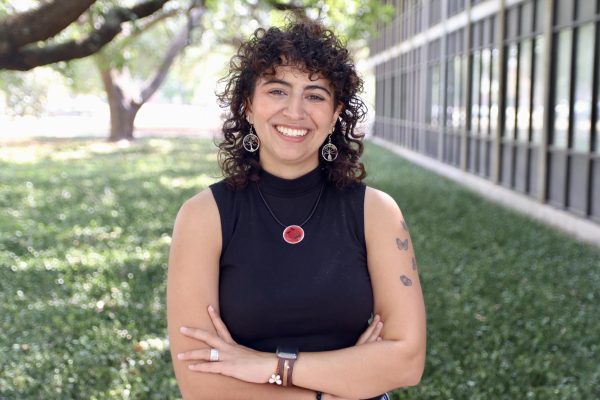
Chloe Williams is an English major with a concentration in creative writing and minors in communication and theater. She hopes to become a newspaper...


